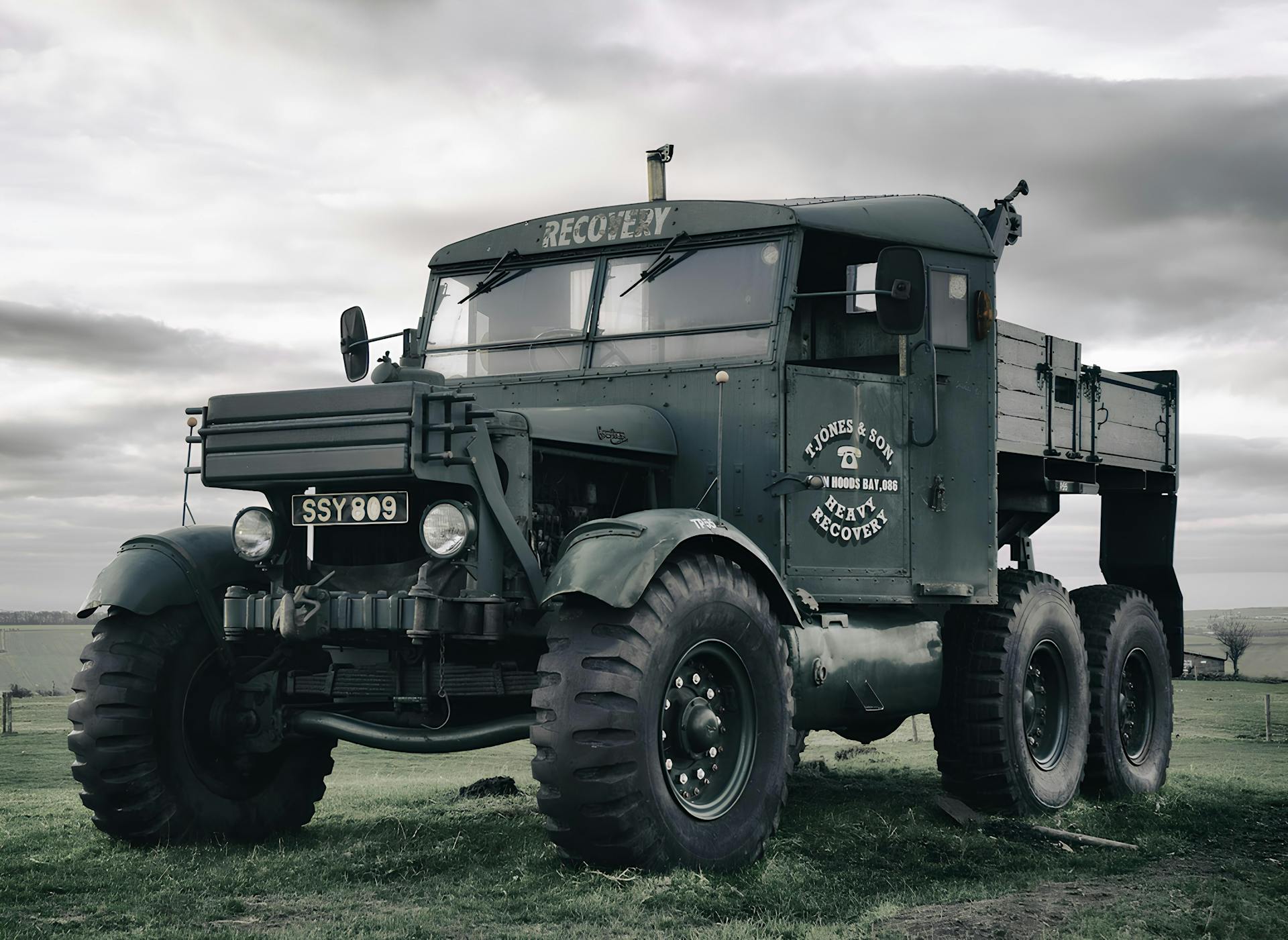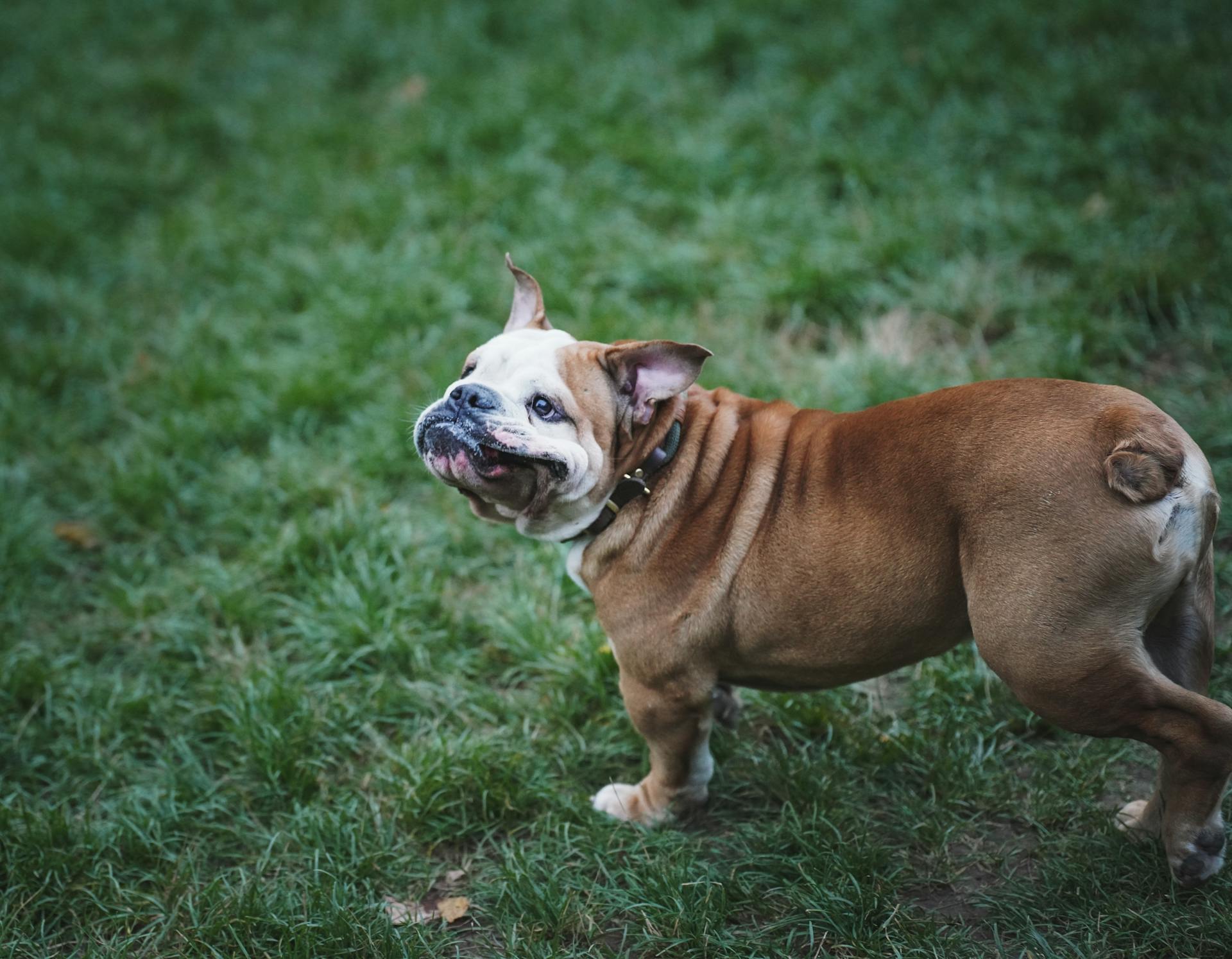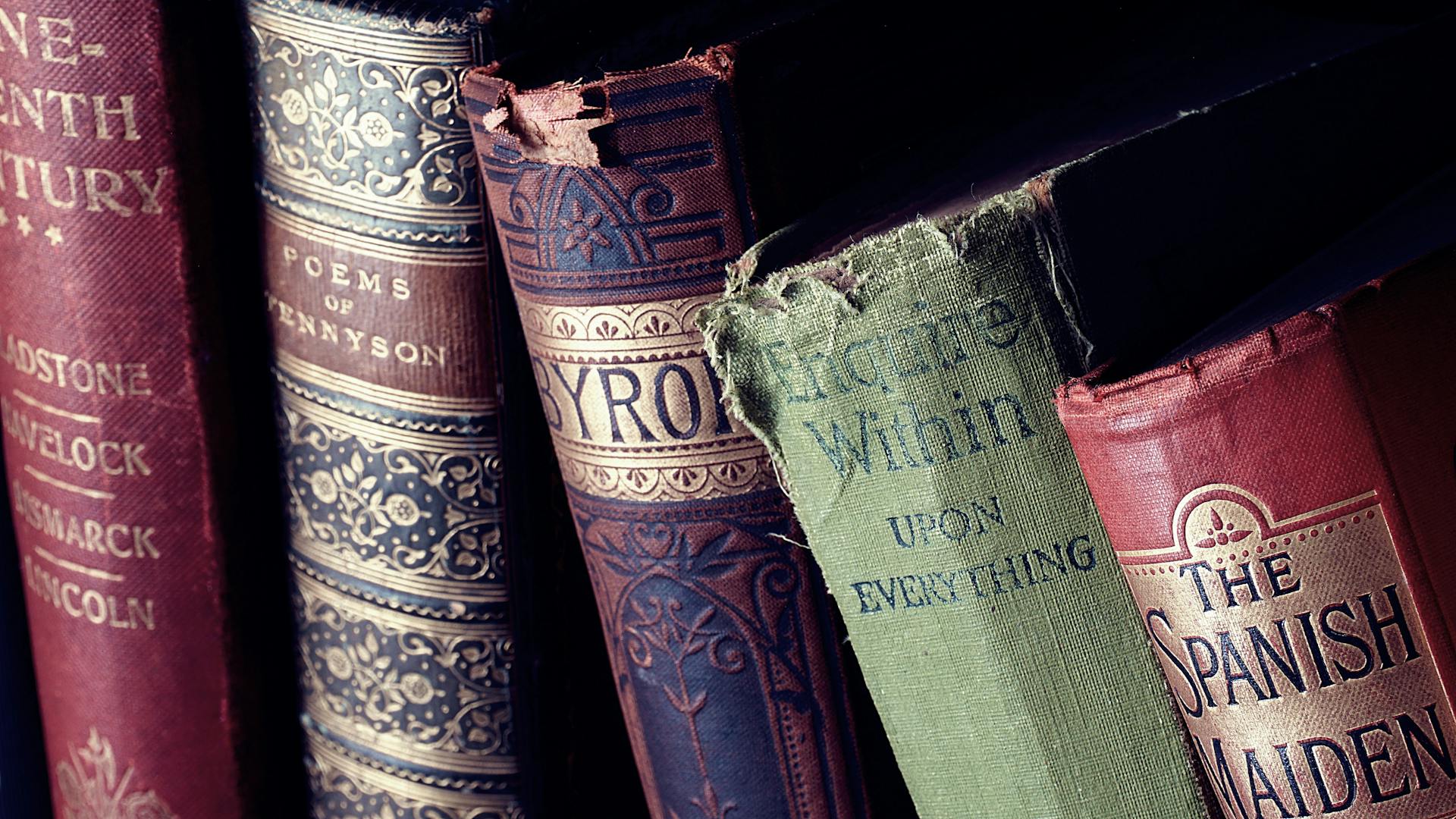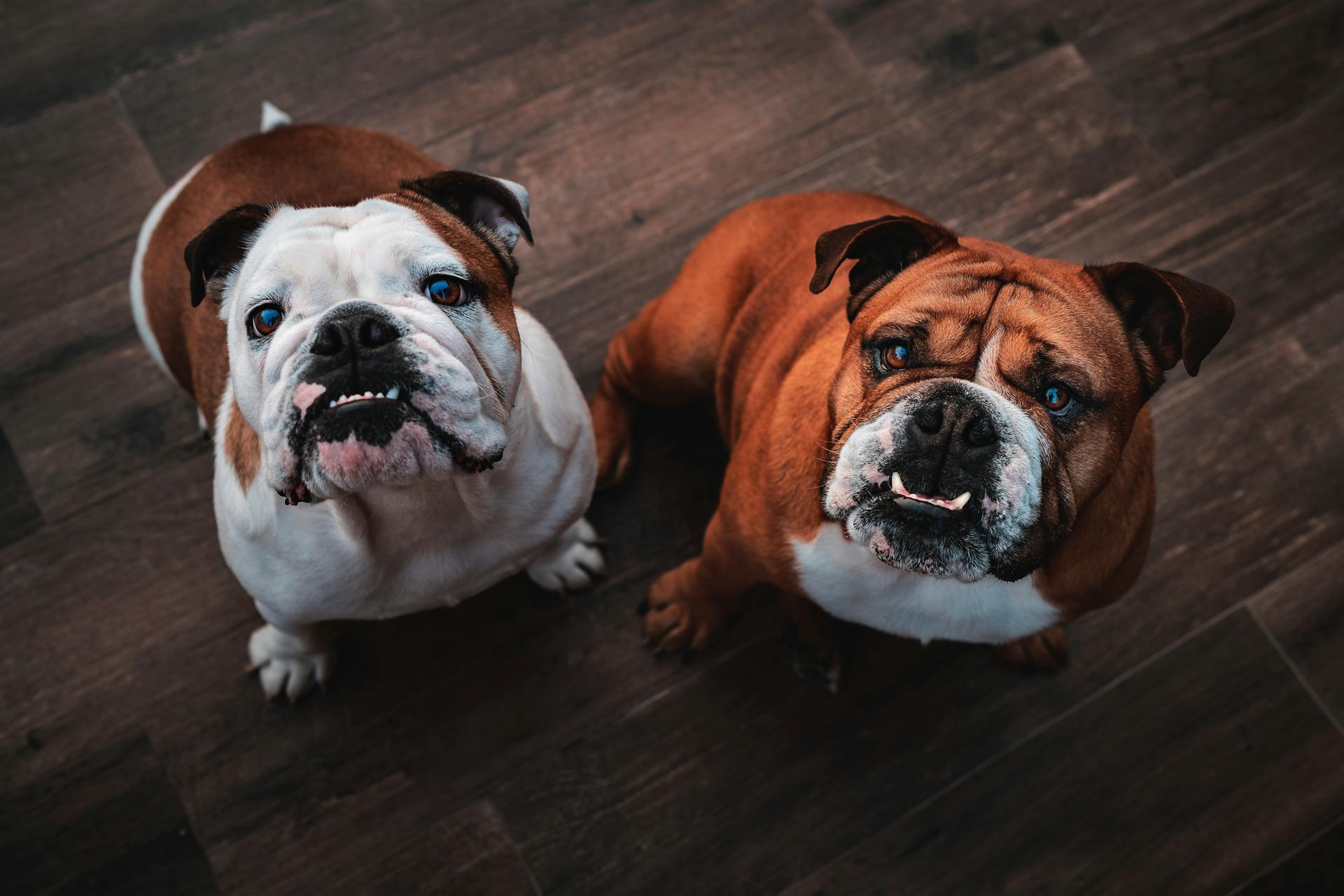
If you're considering bringing an Olde English Bulldogge into your family, one of the first things you'll want to know is how much they cost. The price of an Olde English Bulldogge can vary depending on several factors, including bloodlines, location, and breeder reputation.
Olde English Bulldogges are a relatively rare breed, which can drive up their cost. In general, you can expect to pay between $800 and $1,200 for a pet-quality puppy from a reputable breeder.
Here's an interesting read: Norwich Terrier Breeder
History
The Olde English Bulldogge has a rich history that dates back to the 1970s when David Leavitt, from Pennsylvania, started his project to recreate the "Regency Period Bull Baiter".
David Leavitt's goal was to create a dog with the look, health, and athleticism of the original bull-baiting dogs, but with a much less aggressive temperament. He began his project in 1971, utilizing the cattle line breeding scheme of Dr. Fechimer from Ohio State University.
For more insights, see: Leavitt English Bulldog
The foundation crosses consisted of one-half Bulldog, one-sixth American Bulldog, one-sixth Bullmastiff, and one-sixth of other breeds. After many planned crosses, the Olde English Bulldogge emerged and began to breed true.
In 1993, Leavitt stopped breeding and turned the Olde English Bulldogge Association (OEBA) registry as well as his personal breeding stock over to Working Dog Inc., owned and operated by Michael Walz of Pennsylvania.
The Olde English Bulldogge was enrolled with the Canine Developmental Health and Performance Registry (CDHPR) in August 2008 to evaluate the breed for recognition within the UKC as a purebred breed of dog.
In 2013, the UKC announced that the Olde English Bulldogge would become a fully recognized breed as of January 1, 2014.
Physical Characteristics
Olde English bulldogges are short-haired dogs with a stocky build, strong shoulders, and a flat face. They have a broad head and a sturdy neck.
Their coat is usually a solid color, but it may have patches of other colors like brown, tan, red, and white. The white patch is often found on their chest or face.
In terms of size, Olde English bulldogges are not the tallest dogs, standing between 15-20 inches tall. They can weigh between 55-75 pounds, with some females weighing as little as 50 pounds.
Here's a breakdown of their physical characteristics:
Bulldogge Temperament & Intelligence
The Olde English Bulldogge is a breed that's all about affection and playfulness. They love their family and are always up for a snuggle or a romp in the yard.
In fact, they're so friendly and outgoing that they're not standoffish to strangers or other animals if they've had proper socialization or training. This makes them a great breed for families with kids or for people who want a dog that's easy to interact with.
Olde English Bulldogges are also highly intelligent and trainable, which is why they're often used for service dog work and even some agility training. They're eager to please their owners and will go to great lengths to learn and perform new tasks.
One thing to keep in mind is that an overly shy Olde English Bulldogge is considered a breeding fault, likely due to poor socialization in puppyhood. So, it's essential to socialize your puppy well to ensure they grow into a confident and friendly adult dog.
Their confident and friendly nature makes them a joy to be around, and they're always animated and expressive, whether they're in the show ring or just lounging at home.
Additional reading: Why Do Goldendoodles Lick so Much
Health
The Olde English Bulldogge is considered a healthier breed of dog compared to many modern bulldog breeds. They can still be affected by various disorders, but proponents of the breed claim it doesn't suffer from the same issues as purebred Bulldogs.
A 2016 study published in the journal Canine Genetics and Epidemiology found that the Olde English Bulldogge was mentioned as an outcross candidate to introduce new genetics and correct problems associated with inbreeding.
In the European Union, rules have been written to ensure farm animals have the right to "freedom from discomfort" and "freedom from pain, injury and disease."
Owning a Bulldogge
Owning a Bulldogge can be a dream come true, but it's essential to remember that they're a high-spirited breed that loves to play.
They're also incredibly affectionate and submissive, making them perfect family pets. Their love for snuggles is unmatched, and they thrive on attention from their family.
As they're a social breed, proper socialization in puppyhood is crucial to avoid any shyness issues. An overly shy Olde English Bulldogge is considered a breeding fault, so it's vital to get them the socialization they need.
With their loving and playful nature, it's no wonder they're a popular choice for many families. They're always up for an adventure and will never say no to a snuggle session.
Three Little-Known Facts About the Bulldogge
The Olde English Bulldogge is a unique and fascinating breed, and here are three little-known facts about it.
They were originally bred to be a healthier alternative to the traditional English Bulldog.
Their ancestors were a mix of English Bulldogs, American Pitbull Terriers, and other breeds, making them a distinct and robust breed.
One of the key characteristics of the Olde English Bulldogge is its athletic build, which allows them to be highly energetic and playful despite their sturdy appearance.
They were developed to be a working dog, capable of handling heavy tasks and withstanding harsh weather conditions.
In terms of grooming, they require regular exercise and a balanced diet to maintain their coat and overall health.
Intriguing read: Dogs Breeds That Start with B
Characteristics
Olde English bulldogges are confident dogs, known for their friendly and alert nature. They are expressive and animated, making them a joy to be around.
Their strong build and sturdy physique gives them a bold appearance, which is also reminiscent of other pitbull breeds like the American Pitbull and English Bulldog. Their short coats come in a variety of solid colors with possible patches of brown, tan, red, and white.
In terms of temperament, Olde English bulldogges are generally outgoing and social, making them a great fit for families and active owners.
For more insights, see: Why Is Pitbull Dog Banned
Bulldogges: A Unique Breed
The Olde English Bulldogge is a unique breed that's full of personality. They're known for being lively and friendly, with a strong desire to please their owners.
One of the most notable characteristics of the Olde English Bulldogge is their protective nature. They're naturally good watchdogs and will defend their family and home if necessary. This trait makes them excellent companions for families with children.
However, it's essential to remember that Olde English Bulldogges can be territorial, especially around larger dogs of the same sex. They can also be gassy and drool a lot, which may not be ideal for everyone.
Despite these characteristics, Olde English Bulldogges are generally outgoing and friendly, making them easy to train. They thrive on attention from their family and require frequent interaction to stay happy and healthy.
Here are some key characteristics of the Olde English Bulldogge:
- Lively and friendly
- Protective of family and home
- Territorial around larger dogs of the same sex
- Can be gassy and drool a lot
- Needs frequent attention and interaction
Overall, the Olde English Bulldogge is a wonderful breed that's perfect for families who want a loyal and loving companion. With proper care and attention, they can thrive and bring joy to their owners for years to come.
Tail

A full tail is preferred, and it's often referred to as a crank or pump handle tail. This type of tail is set on as a natural extension of the topline, and tapers to a point.
A straight tail is also acceptable, and it should be carried low and extend approximately to the hock when the dog is relaxed. This is a natural way for the tail to move.
The tail may be carried level with the back when the dog is moving. In this position, the tail should be held high, but not too high.
A docked tail is acceptable, but not preferred. This means it's okay, but it's not the ideal situation.
The tail should never be curled over the back, which is considered a fault. This is not a desirable trait in a well-formed tail.
A fresh viewpoint: When to Blanket an Old Horse?
Tail
A full tail is preferred for Olde English Bulldogge, with the characteristic "crank or pump handle tail" being the ideal shape. This type of tail tapers to a point and is set on as a natural extension of the topline.
The tail should be carried low when the dog is relaxed, extending approximately to the hock. It's essential to check the tail's position in different situations.
When the dog is moving, the tail should be carried level with the back. This is an important aspect to consider when evaluating the breed's characteristics.
A docked tail is acceptable, but not preferred.
Explore further: What Age Do Male Dogs Breed
Frequently Asked Questions
Are Olde English Bulldogs rare?
Yes, Olde English Bulldogges are a rare breed due to their relatively recent development. They are a unique breed with a distinct history that sets them apart from other bulldog breeds.
Sources
Featured Images: pexels.com

